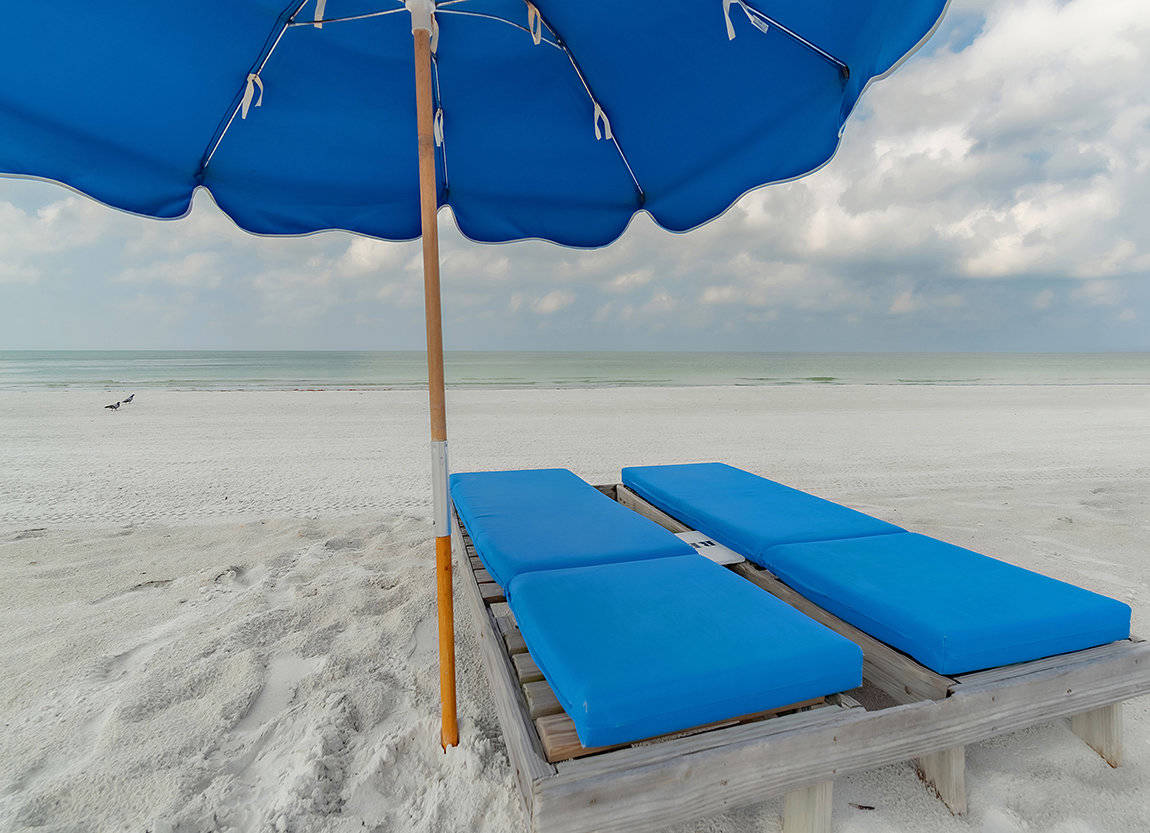As a property owner or investor, you know that investing in Airbnb properties can provide strong returns. But with so many features to consider, it can be challenging to know exactly what to look for in various properties. In this blog post, we will explore the top ten features that you should evaluate when it comes to creating a prosperous Airbnb property.
1. Location – seeking a location that’s close to amenities and attractions
A prime location for an Airbnb property often implies easy access to local attractions, restaurants, shopping and transportation. For instance, many guests will seek properties near city centers or tourist hotspots adue to their proximity to museums, historic sites and entertainment venues. Likewise, a property close to nature reserves or beaches can also be attractive for those seeking a tranquil getaway. The accessibility to public transport or major highways is another key factor as guests often value the convenience of getting around. In residential areas, quiet neighborhoods with ample parking and safety features are a popular choice. All these facets contribute to enhancing the guest experience, thereby bolstering the property’s potential for positive reviews and repeat bookings.
2. Property condition – Invest in properties with good structure and maintenance
The condition of a property significantly influences your potential success when investing in Airbnb properties. Investing in properties that are structurally sound and well-maintained not only saves you from costly repairs down the line but also ensures a comfortable and safe stay for your guests. Look for properties with recent renovations or meticulous maintenance over the years. Essential facilities such as plumbing, heating, and electrical systems should be in good working order. Additionally, the aesthetics of the property such as the exterior paint, interior decor, and landscaping can greatly enhance the appeal of your listing. Remember, a property in good condition is more likely to receive positive reviews from guests, which in turn can increase your booking rates and profitability.
3. Zoning regulations – Ensure the property is in compliance with local laws on Airbnb rentals
Understanding and complying with local zoning regulations is a vital part of operating a successful Airbnb rental. Zoning laws dictate the usage of a property, ranging from residential, commercial, to mixed-use, and can significantly impact your ability to use your property as a short-term rental. Each city or region may have different regulations, and these can change over time. Some might prohibit short-term rentals altogether, while others may require special permits and licenses.
In addition to zoning laws, other local regulations may affect your Airbnb operation, such as rules on noise, parking, waste management, and even the number of guests allowed per booking. Some cities might also require the payment of occupancy taxes, collected from guests who stay in lodgings for a short period.
Non-compliance can result in hefty fines and penalties, and even the suspension of your listing. Therefore, it’s crucial to do your due diligence – visit your local government’s website, consult with real estate professionals or legal counsel, and keep abreast of any changes to ensure ongoing compliance. Remember, a responsible and law-abiding host not only avoids legal troubles but also contributes to a positive image of Airbnb in the community.
4. Property size – Consider the number of guests each property can accommodate
The size of your Airbnb property is a significant factor as it directly influences the number of guests you can accommodate. If your property is spacious, with several bedrooms and bathrooms, it’s suitable for hosting larger groups or families. This can be an advantage as larger groups often have higher budgets and can result in higher income per booking. However, upkeep and maintenance could be more demanding.
Conversely, a smaller property, such as a one-bedroom or studio apartment, might appeal more to solo travelers or couples. These properties can be easier to manage and may have lower operational costs, but they also typically generate less income per booking.
The layout of your property also matters. Even a smaller property can accommodate more guests if it has a flexible layout, for example, with a sofa bed in the living room or a loft for extra sleeping space.
In all cases, ensure that your property can comfortably accommodate the number of guests you’re advertising. Trying to fit too many guests into a small space can lead to negative reviews, which could harm your booking rates in the long run. It’s always crucial to balance maximizing your income with providing a comfortable and enjoyable stay for your guests.
5. Rental rates – Research rental rates for similar properties in the area
Setting the right rental rate for your Airbnb property is a crucial factor in maximizing occupancy and profitability. It’s important to conduct thorough market research and evaluate rental rates for similar properties in your area. This includes looking at properties with similar size, amenities, and proximity to attractions. You can use Airbnb’s own pricing suggestions, but also consider using other tools and platforms for a broader perspective.
Competitor analysis doesn’t stop at just pricing – also take into account the services they offer, their booking rules (like minimum stay requirements), and their guest reviews. Understanding what guests appreciate about other properties can provide insight into potential improvements for your own listing.
Bear in mind that rental rates can fluctuate depending on the season and local events. Higher rates might be feasible during peak travel seasons or during major events, while lower rates may be more attractive during off-peak times to encourage bookings. Regularly updating your pricing to reflect current market conditions is key to staying competitive.
6. Curb appeal – Evaluate the exterior of the property to determine its attractiveness to potential renters
The curb appeal of your Airbnb property plays a pivotal role in attracting potential renters as it is often the first impression guests have of your space. A property with a well-maintained exterior, neat landscaping, and attractive features such as a welcoming entrance or outdoor seating area, can draw more views and bookings. Clear and appealing photos of your property’s exterior should be a key part of your online listing.
Consider investing in property upgrades like painting the exterior, investing in outdoor lighting, or adding attractive elements like a nice porch or garden. If your property is an apartment or condo, you might have less control over the exterior, but ensuring a clean and welcoming entrance area can still make a positive impact.
Remember, guests are looking for unique and inviting spaces that add value to their travel experience. A property with excellent curb appeal not only stands out in the market but can also command higher rental rates, thereby enhancing your return on investment.
7. Rental Math – Evaluate the projected cash flow and cash on cash return
Evaluating the projected cash flow and cash on cash return is an essential step to determine the financial viability of your Airbnb property. Cash flow refers to the net income you receive from the rental after deducting all operating expenses such as cleaning, maintenance, insurance, utilities, and Airbnb fees. Positive cash flow indicates that the property is generating more income than it costs to operate, making it a profitable investment.
On the other hand, Cash on Cash (CoC) return is a metric that measures the return on your actual cash investment. It’s calculated by dividing the annual pre-tax cash flow by the total cash invested. CoC return allows you to understand the profitability of the property in relation to the initial investment, providing a clear picture of your return on investment.
To estimate these metrics, you need to have a clear understanding of both your income (rental rate, occupancy rate) and expenses (fixed and variable costs). Remember, these calculations should be based on realistic numbers, not the best-case scenario. Multiple online tools and calculators are available to help with these computations, so utilize them to ensure an accurate financial analysis of your Airbnb property.
8. Budgeting for Home Decor – Understand the costs for outfitting an Airbnb
Budgeting for outfitting an Airbnb property with furniture, kitchen, and bath amenities is an integral part of your investment strategy. It’s not just about filling the space, but about creating a comfortable and inviting environment that enhances the guest experience.
Firstly, consider furniture. From beds and sofas to dining tables and patio furniture, you need to ensure that the furnishings are comfortable, functional, and aesthetically pleasing. Costs can vary widely depending on your style and quality preferences, so be sure to allocate a reasonable budget to acquire durable pieces that can withstand regular use.
Secondly, the kitchen should be well-equipped to allow guests to prepare their own meals. This includes a full set of cookware, utensils, plates, glasses, and small appliances like a toaster and coffee machine. You also need to provide cleaning supplies like dish soap, and basic consumables like coffee, tea, and spices.
Lastly, stock bathrooms with essentials like towels, toilet paper, soap, shampoo, and a hair dryer. Consider also adding some luxury items like bathrobes or high-quality toiletries to really impress your guests.
Remember, the goal is to make your Airbnb property feel like a ‘home away from home’ for your guests. Thoughtful decor and amenities can significantly enhance your guests’ experience, leading to positive reviews and more bookings in the long run. Always keep quality, durability, and guest comfort in mind when budgeting for your Airbnb decor and amenities.
9. Rehab and Improvements – What needs to be fixed, replaced or repaired
Understanding the need for rehab and improvements is vital for maintaining your Airbnb property and enhancing its appeal to guests. This step involves thoroughly inspecting your property to identify any parts that may need fixing or repairs.
Start with the basics: check the functionality of utilities such as plumbing, electrical systems, heating and cooling systems. Any issues with these essentials should be addressed immediately, as they impact the comfort and safety of your guests. Also, ensure the structural integrity of your property – look out for signs of wear like cracks in the walls, leaks, or pest infestations.
Don’t overlook cosmetic improvements. A fresh coat of paint, new carpeting or flooring, updated fixtures, and modernized appliances can significantly enhance the look and feel of your space, making it more appealing to potential guests.
Outdoor areas also need attention. Check for any necessary repairs to patios or decks, landscape improvements, or exterior paint touch-ups.
Remember, rehab and improvements are not just about fixing what’s broken, but also about ongoing maintenance and updating your space to keep it modern and inviting. While these activities require investment, they can significantly increase your property’s value, command higher rental rates, and improve your guest’s overall experience, leading to better reviews and repeat bookings.
10. Walkability – Making it easy for guests to get around
Walkability is a crucial factor in providing an optimal Airbnb experience for your guests. A property located in a walkable neighborhood enhances the convenience and enjoyment of the stay, reducing the need for guests to rely on public transportation or rental cars. Accessible grocery stores, restaurants, cafes, parks, and tourist attractions within a short walking distance create a more immersive travel experience. Furthermore, properties in walkable areas often rank higher in Airbnb searches, increasing your visibility and booking rates. Therefore, when choosing and maintaining your Airbnb property, consider its proximity to key amenities and attractions, and make sure to highlight these features in your listing.
Recent Posts
A Security Camera Overview As an Airbnb or VRBO host, your top priorities are the safety of your guests, the protection of your property, and providing a secure environment that allows your guests...
As we delve into the increasingly popular world of short-term rentals, it's no surprise that many of us are intrigued by the potential to tap into this lucrative trend. One opportunity that stands...

